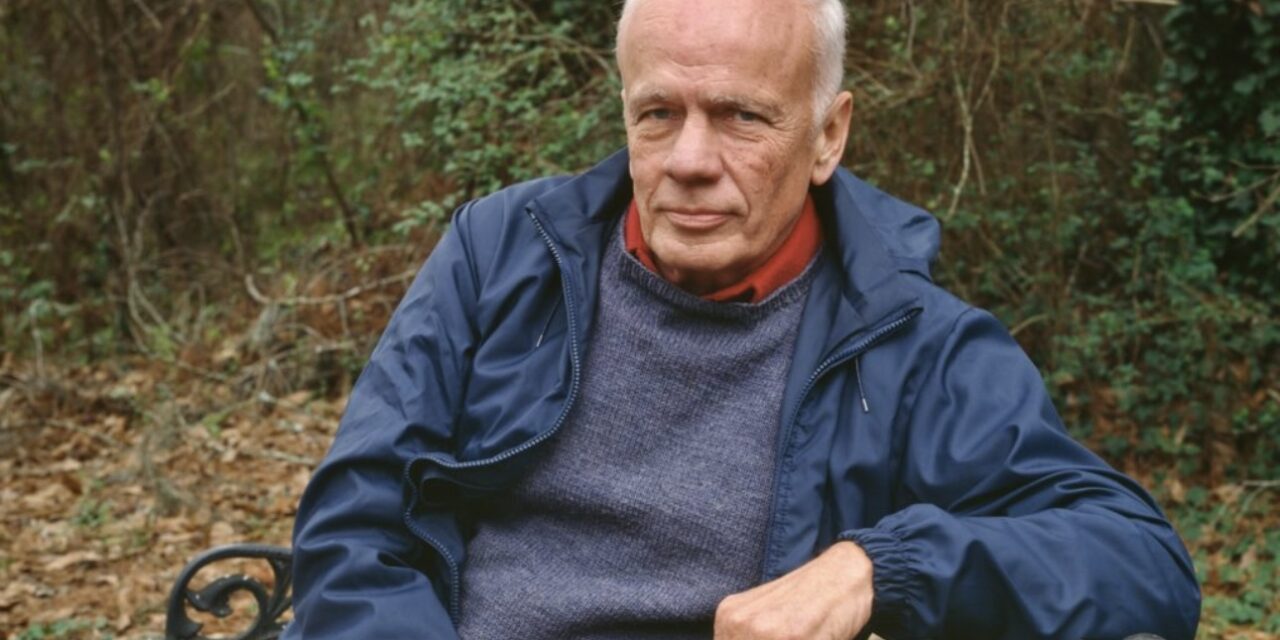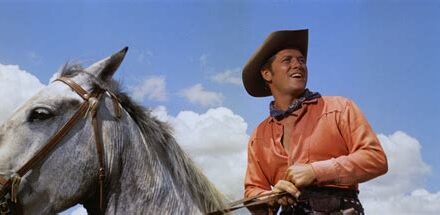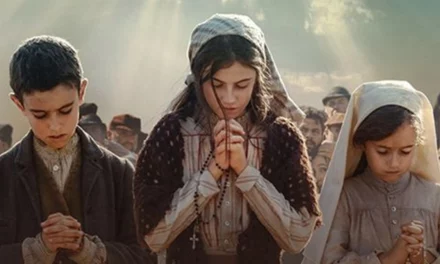I don’t know if you’ve spent much time in south central Alabama. For most people, it’s a place between places—a place on the way to places. It’s on most Southerners’ way to the Gulf, to Mobile, Gulf Shores, and New Orleans. Right in the heart of this place are a few gems like Hope Hull and Pine Apple. Yes, Pine Apple, two words. Just south and a little west of these you’ll come across a couple of must stops. Monroeville, Harper Lee’s Monroeville, hosts an annual reenactment of To Kill a Mockingbird. The first act is on the courthouse lawn, and the second act is in the courtroom. If you’re a white male, there’s a possibility you’ll be selected as a juror. There’s a great bookstore and some neat cafes. And just on down 65, Evergreen, Alabama boasts the new Conecuh Sausage Company Store—a pilgrimage–worthy site for anybody who is in the know about Conecuh Sausage. If you’re not, don’t worry about it.
On my way to Baton Rouge Sunday night, I stopped at the Evergreen exit for some fuel for the car, some food for myself,and a little rest. There’s a Shrimp Bucket restaurant there. The Shrimp Bucket is a chain that has two of my favorite things that are pretty hard to find together on a Sunday night at 8:30 in south central anywhere: fried blue crab claws and Long Island Iced Tea. (I grasp the irony, believe me. But I am a mass of contradictions.) I was wearing a cap, blue jeans, boots, and an Alabama football t-shirt under a cabled cardigan. I don’t know if I “pull it off” or not, but I don’t ask anybody and live with my illusions.
There are very few hard and fast rules I live by, but one of them is “Don’t ever go anywhere without a book.” That night I had Walker Percy’s The Last Gentleman, which I believe is the postmodern equivalent of T.S. Eliot’s modern “Prufrock.” I should qualify this; I believe that both works are about masculine identity crises, specifically that of being the recipient of an existential model that seems irrelevant, outdated, and even dangerous. This is a particular crisis for white Southern men, and I have never known a writer who understood it or described it with the perfect complexity and nuance of Walker Percy. I am a recipient of that very model, and in adulthood, Will Barrett has become for me what Holden Caulfield was when I was fourteen. I actually often raise a glass to Will Barrett. I say “Will Barrett,” but non-Percy people hear “Will Bear It,” or, “We’ll Bear It.” I’d chalk it up to clever snobbery, but the fact is I mean it, however it’s heard. Will Barrett is talismanic, the conundrum of white southern masculinity for which Fate chose me.
There’s a great deal to say about the code of a “Southern Gentleman.” I’ll boil it down to two things, and readers of The Last Gentleman will recognize these. The basic elements of masculine Southern gentility are Protocol and Sensitivity. In the post-Postmodern world, these two facts stand in such contradiction to each other that the real Southern Gentleman is rendered powerless in the paradox. He has been taught to act in a certain way, but he has also been taught to be sensitive to as many contingencies, spiritualities, causes, and personalities as possible, especially to those of the feminine or weak. The ironies abound. The sellouts choose one of the two and double down. “I don’t give a damn if it bothers her for me to open the door. That’s what I’m supposed to do.” The rest of us white Southern men are Will Barrett.
At The Shrimp Bucket, I ordered fried blue crab claws and a Long Island. I munched and sipped and read and looked around the restaurant. Randy Travis was on the speaker singing country songs from the eighties. I was enjoying listening to the sound of people talking. I don’t mean listening to their conversations. I mean just the sound of talking. It’s usually a pleasant, organic, musical thing, especially in the South. There are warm, sweet rhythms to it. Seated closest to me and alone was an older African-American woman eating catfish and shrimp. She was taking her time, really enjoying it, like I was enjoying my crab claws, my Long Island, my book, and the sound of people. I paid attention to this particular diner. Because she told everybody she talked to, I could tell you her name, but I’m not going to. She was proud of it and the fact that she was from Evergreen and always had been, that she ate here all the time, and that she drove her own car. Her server was brand new and evidently needed to be brought up to speed.
I was so delighted by these exchanges that I asked my server to make sure I got her bill, so I could buy her dinner. I do this regularly, almost daily. I only mention it to people I really care about, but I hate for people to tell me how nice that is, because the fact is that I do it selfishly. Nothing makes me happier, so I do it. This practice creates quite a theological paradox, for it is in those moments that I hear Satan whispering in my ear clearer than at any other time. “You’re not doing this to be kind,” he says. “You’re not doing this for her. You’re doing it for you.” He’s right in a way, of course. And that’s one of theaspects of pure self-doubt that Percy’s Will Barrett understands. It’s also the reason I find myself saying in these moments, “Get thee, behind me Satan. You are mindful of the things of man, not the things of God.” I expect others recite that formula during other temptations; to each his own. I have to tell myself that good is good even if it makes me feel good for doing it. Christ, in fact, “for the joy that was set before him, endured the cross.”
I usually try to “get away” with this self-interested charity, as my maternal grandfather advised. I tell the servers I want to do it anonymously. Most of the time I just get up and leave. But she was done before me and left cash on the table. Her new server reacted like a deer in the headlights and was in the process of calling a manager. I stepped in. I confessed to the dear lady that it had given me great pleasure to sit close to her and buy her dinner and that I hoped she would come back very soon. She blessed me, thanked me, told me that I had made her night, and that she hoped I would live a very long time. I told her thanks, but that last one threw me. I don’t think much about living a long time. I’m not sure what I’ll do if I do. I just think about living. Will Barrett.
And that’s when the shit hit the fan. Pardon my French, s’ilvous plait.
As a qualification: I don’t believe in just giving people stuff. I do it all the time, but I believe that what people need more than anything else is human contact, an ear, a shoulder, some attention. According to Simone Weil, “Attention is the rarest and purest form of generosity.” (Will Barrett is good at this.)
After all the gratitude and good wishes, my fellow diner asked me my name, and then she asked me if I ever take my wife out to dinner. Now, after twenty-eight years, I’ve been “unmarried” for approximately a month and a half, so I’m still learning how to answer questions like that. (My new ex-wife asked to be mentioned in this story. She was also really drunk when she asked, so we’ll give her a shoutout but not a name. Here you go, babe. You know who you are. We’ll Bear It 🙂 Because, I didn’t have a real good answer and because I felt like she could use some company, I went over and sat down. She told me all about herself, even though I’d heard a lot of it already. She told me her age (several decades more than mine), her life story—the short version. We talked about God and his provision.
She then said, laughing, “If you’re ever through this way again, call me.” “Yes, ma’am.” (I call most woman “ma’am.” It was beaten into me as a child, and honestly, it’s most often resulted in my being treated favorably.) She laughed and said, “You don’t even have my number. But maybe you’re not ready for that.” “I’m definitely not ready for that,” I replied, “I’m just trying to get from one day to the next” (Will Bear It). “Well, you call me anyway,” she said, “I’ll tell you how God will be good to you.” “I know he will. He always has been.”
I started my car and pointed it south. My eyes were glistening, and my soul was chuckling.
To get from Atlanta to Baton Rouge is simple. You go to Montgomery and turn left. Then you go to Mobile and turn right. That’s it. There are a lot of miles between but not many complications if you don’t count The Shrimp Bucket and the casinos.
Once you pass Pascagoula and the Pearl River you’re in Louisiana. It’s not far then to New Orleans or Baton Rouge. Just stay on 10 for the former or veer a little north on 12 for the latter. If you do take the Red Stick option, you’ll pass the Covington-Mandeville exit, and if you go on a few more miles and pull into Walker, check into the Best Western Plus, take your boots off, and pick up The Last Gentleman, you’ll read on the back cover that this is Walker Percy country. In fact, he lived in Covington. There’s a Walker Percy “trail” of author-related sites you’ll want to visit. Just don’t miss Monroeville, the Conecuh Sausage Company Store, or The Shrimp Bucket along the way.
Now, like most of Walker Percy’s novels, I’m not sure what the moral of this story is, but I’m sure it has something to do with interstates, fried crab claws, and being shocked speechless by the pure audacity of life in the South. Raise a glass. “Will Barrett.”














